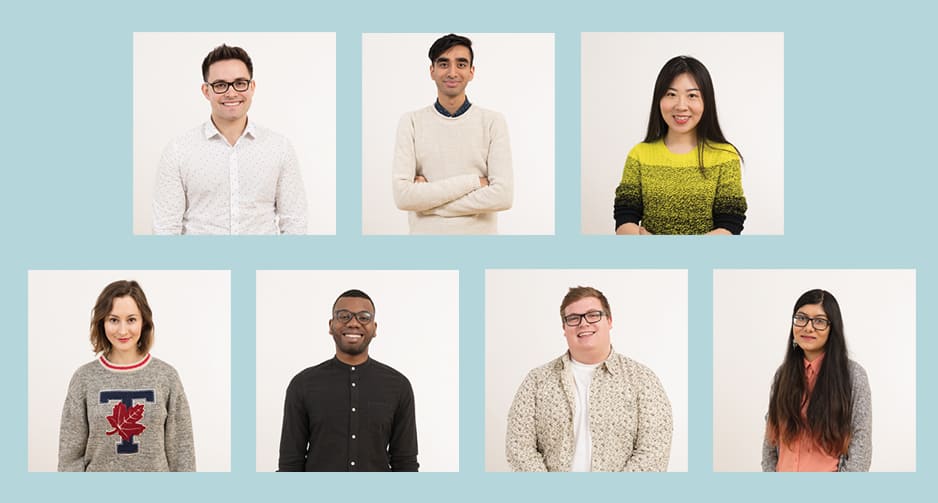Candidates and journalists alike were no doubt relieved when this year’s University of Toronto Students’ Union (UTSU) elections period came to a close. Now that unofficial results have been released, The Varsity’s Editorial Board seeks to draw the new administration’s attention to the concerns that we feel are most salient to students.
Firstly, any organization that collects non-optional fees from students should be intensely concerned with managing that money responsibly. The hope is that the UTSU will continue to work away at these issues by undergoing the internal reform promised by many candidates during the campaigning period.
Given that human resources make up $982,300 of the UTSU’s 2016–2017 Operating Budget, President-elect Mathias Memmel was particularly outspoken about his desire to cut back on spending in this area. During their campaign, Demand Better — who won all but two executive seats — proposed merging the Vice-President University Affairs and Vice-President External positions, claiming this would save the UTSU $50,000 a year.
With contract negotiations for positions coming up in January 2018, the UTSU should start making plans to cut back.
We are also reminded of the ongoing lawsuit against former UTSU executive director Sandra Hudson, in which the UTSU alleges that $247,726.40 of student fees are at stake, and that Hudson has counter-sued the union citing breach of disparagement and confidentiality clauses within her termination agreement. Legal proceedings are often frustratingly slow, but given the accountability and liability concerns involved, it is crucial that updates to the student body be continually issued on this file.
In the meantime, as the rubble settles around the explosion of campus controversies that occurred earlier this year, students and campus groups have repeatedly requested the UTSU to respond to the equity concerns that have arisen, particularly with respect to the safety of transgender students.
A number of candidates expressed solidarity with marginalized groups on campus throughout the campaign period, but as has been echoed in our pages, verbal commitments are only useful insofar as concrete action follows.
During The Varsity’s UTSU presidential debate, Memmel expressed that education plays a crucial role in equity work. The Editorial Board is interested to see how this might play out in practice, given that the campus remains divided on a number of fronts.
Tuition advocacy also ought to play a significant role in the new administration’s agenda: maintaining the recently-renewed three per cent cap on tuition in Ontario, and pushing for further changes in the name of financial accessibility to education, is in all of our best interests. Incoming Vice-President University Affairs Carina Zhang was the sole elected executive from We the Students, and she might be a strong influence on this front considering the slate’s commitment to affordable education.
One of the more widely discussed advocacy campaigns this year has been with regard to potential decertification from the Canadian Federation of Students (CFS). Since four members of the outgoing UTSU Executive publicly endorsed the You Decide campaign for a CFS decertification referendum — and the three others promptly condemned the endorsement — You Decide’s relationship with the UTSU has remained unclear.
Incoming Vice-President Internal Daman Singh has been involved with the You Decide campaign, and whether Singh will take the reins and spur the UTSU to action within the scope of his new role remains to be seen. You Decide organizers themselves seem to be keenly conscious of the work that remains to be done before decertification becomes a realistic prospect, as reflected in their recent Facebook post: “We ain’t done yet.”
The UTSU should also consider what might happen if the ‘yes’ vote that decertification proponents been salivating about comes to fruition. The $750,000 of UTSU membership dues that are now being paid to the CFS could be reallocated to other projects, or, perhaps ideally, returned to students’ pockets. It is crucial that the UTSU develop a student consultation strategy should it need to make that decision down the line.
To the tune of democratic representation, there was talk from Demand Better about banning slates for UTSU elections. Incoming Vice-President External Anne Boucher won her seat whilst running as an independent, and the prospect of an election where all candidates are altogether free of UTSU partisanship would be an interesting departure from previous protocol if pursued.
Yet, regardless of the efforts the incoming UTSU makes to reform its practices internally, there are still entire cross-sections of the campus community that it is failing to reach. The voter turnout in these elections is often abysmal; this year it was 11.8 per cent, admittedly up from 9.7 per cent in 2016. Spoiled ballots are just as telling as no-shows — in some categories this year, abstentions made up over a third of the total votes, as the UTSU’s unofficial election results show.
There is a reason why so many candidates in this year’s election flocked to describe the UTSU as broken: an organization that collects student fees from all students, but whose members are chosen by a meager portion of the student body, can hardly be considered fully democratic.
Voter engagement is something that past administrations have consistently struggled with, and the incoming UTSU would be wise to prioritize this concern and perhaps adopt some new strategies toward addressing it, as it is clear that what has been done before is not working.
To all elected UTSU representatives, the Editorial Board wishes a sincere best of luck and awaits the progress that new blood might bring. When it comes to student politics, we’re always on the edges of our seats.


